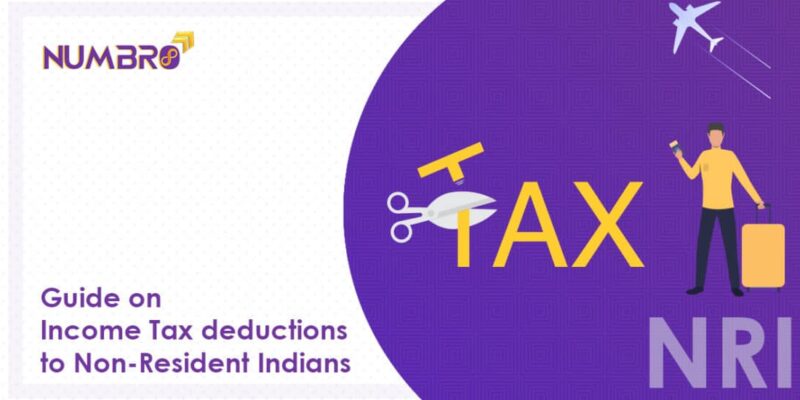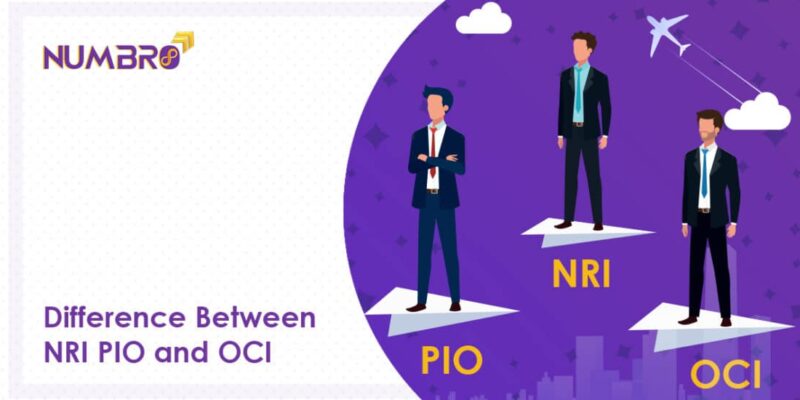Income Tax Deductions for NRI
Are you a Non-Resident Indian? Do you know the Income tax deductions for NRI available on income earned in India? In this article, we will guide you on various deduction options available to a NRI. One should know his residential status, before the filing of Income tax return. There are specific rules to determine the residential status of an individual as per the Income Tax Act 1961. Know Residential Status of NRI here before you look further into this article.
If a NRI has any income that deems to accrue or arise in India, he is required to file a return of income in India. For him to reduce such a tax burden on the income earned in India, there are a few investment options available to him.
Though there is a wide range of deductions available to individuals under Chapter VIA, only a few deductions apply to NRIs. The below list of deductions applies to NRIs with certain conditions to be fulfilled to claim such deductions.
Income Tax Deductions under sections 80C 80D, 80E , 80G, 80TTA
Let us understand in detail the Income tax deductions for NRIs, the quantum of deduction available, and the sections 80C, 80D, 80C, 80E, 80G and 80TTA to be fulfilled to claim such deduction.
- Section 80C
- Section 80D
- Section 80E
- Section 80G
- Section 80TTA
Under Section 80C: The quantum of deduction under this section is ` 1,50,000 and an additional contribution made to National Pension Scheme under Section 80CCD is up to
- 50,000. Hence the total allowable Income Tax deduction that can under Section 80C + 80CCD is
- 2,00,000. Though 80C offers a list of Income Tax deductions that can be made only the following apply to NRIs
- Life Insurance Premium paid on self or in the name of spouse or children. The premium paid must be less than 10% of the sum assured.
- Tuition Fees paid for full-time education to any school, college, university, or educational institution situated within India. This deduction is allowable for a maximum of 2 children. It includes payments made to pre-nursery, play-school, and nursery and excludes Term fees and transportation charges for this purpose.
- Principal repayments on loan for the purchase of house property. Repayment of loan taken for buying or constructing residential house property is only allowed and also allowed for stamp duty, registration fees, and other expenses for the transfer of ownership to NRIs.
- Unit linked Insurance Plan investment is also allowed as Income Tax deduction, which includes a contribution to the Unit Linked Insurance Plan of LIC Mutual Fund.
Equity Linked Savings Scheme:
- Contribution to National Pension Scheme (Section 80CCD). A non-resident Indian between the age of 18 and 60 years can open a National Pension Scheme account and make contributions to the same.
- Conditions to claim Deduction under section 80C
- Non-resident Indians do not have the same saving options as resident Indians.
- Non-residents are not allowed to invest freshly into the scheme of the National Savings Certificate (NSC) or Public Provident Fund (PPF). He can continue investing in the existing accounts until maturity.
- A non-resident Indian can continue to invest in an existing account opened before becoming a non-resident Indian. He can also invest in the name of his spouse or children provided they are Indian residents.
Under Section 80D :
Aggregate Income tax deductions available under this section is ` 50,000. That is quantum of deduction available to self, spouse, and children are` 20,000 and the maximum deduction available on a premium paid for parents is ` 30,000. The above amounts include the amount of ` 5,000 paid against preventive health check-up.
- Non-resident Indians can claim deduction under this section for a premium paid for health insurance for themselves, family, or parents in India.
- Conditions to Claim Deduction under section 80D
- Income Tax deduction is available only on payment made to the General Insurance Corporation of India (GIC) or any other approved insurance companies.
- Payment should be made in any mode other than cash. However, payments on account of preventive health check-up can be made in cash.
- Non-resident senior citizens are not qualified for 80D health insurance tax benefits.
- The amount should be paid out of his income chargeable to tax.

Under Section 80E –
- This section allows NRIs to claim a deduction of interest paid on educational loans taken for the higher education of such non-resident or his spouse or children or for any student for whom such non-resident is a legal guardian.
- There is no limit on the amount eligible for deduction. The whole of interest paid by non-resident can be claimed as Income Tax deduction. However, the principal repayment is not an allowable amount for deduction under this section.
- This deduction is available for a maximum of 8 years or till the interest is paid, whichever is earlier.
Under Section 80G :
- NRIs are allowed to claim deduction on eligible donations for social causes as per section 80G of Income Tax Act, 1961.
- Conditions to claim Deduction under section 80G
- Deduction under this section is allowed to all assesses irrespective of legal entity and head of income
- Donation is made to specified funds or institutions.
- A person can avail of a maximum deduction of ` 2,000 if the donation is made in cash. However, there is no such restriction for a mode of payment other than cash.
- Donation in the form of kind is not eligible for deduction under this section.
- Donations made to a foreign trust or political parties are not eligible for deductions.
Under Section 80TTA –
- NRIs are also allowed to claim Income Tax deduction on income from interest on savings bank account up to a maximum of Rs. 10,000 like resident Indians.
- This is allowed on deposits in a savings account (not time deposits) with a bank, co-operative society or post office and is available starting from FY 2012-13.

* vulputate eu scelerisque sit amet just

* vulputate eu scelerisque sit amet just
The above mentioned are an exhaustive list of eligible deductions applicable to non-resident Indians under Chapter VIA of Income Tax Act, 1961. A non-resident can reduce his tax liability if he spends his monies in any of the above-stated investments. There are areas where a non-resident would not be eligible for any deduction, as stated below:
Deductions Not Allowable for NRI –
- Investments into small savings such as Post Office Deposits.
- Investment in National Savings Certificates.
- Senior Citizen Savings Scheme.
- Investment in new Public Provident Fund accounts.
- Investment in Sukanya Samriddhi Account Scheme.
- Investment under section 80CCG that is payments made to Rajiv Gandhi Equity Savings Scheme.
- Payments made for the maintenance of differently-abled persons including medical treatment of handicapped dependent under section 80DD.
- Payment made towards medical treatment for a dependent who is disabled as certified by a prescribed specialist under section 80DDB.
- Where a non-resident himself has any disability as per section 80U is also not allowed as a deduction for non-resident Indians.
- Investment in agricultural property, plantation, or Farmhouse.
- Not-eligible to invest in a firm or proprietary concern engaged in agricultural/ plantation activity, real estate business, or print media.
Comments (2)
-
-
Kevin Wels
Cu nam decore petentium, cum no dico laudem. Duis postulant an est, doming quaestio efficiantur vel ex, cibo discere repudiare quo.
-
Comments are closed.





Laura Dern
Lorem ipsum dolor sit amet, cu his justo ornatus oporteat, ea eius erant qui, in alia congue eos. Usu iusto vidisse mentitum cu, sed periculis adipiscing id.